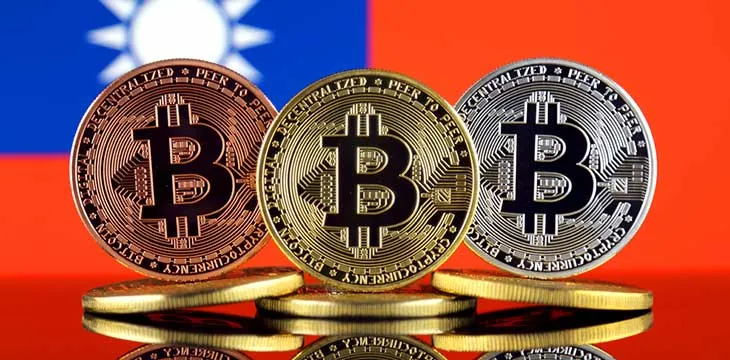|
Getting your Trinity Audio player ready...
|
Taiwan’s Ministry of Justice has hinted that public servants might be required to make public their digital currency assets in accordance with the nation’s code of ethics.
In a statement, the Taiwanese government confirmed that it deliberated extended disclosure rules for public officials to digital currencies. Under local property declaration laws, government employees and elected officials are expected to declare assets exceeding NT$1 million (US$32,900) to “ensure the integrity of the conduct of public servants.”
A timeline for the inclusion of digital currencies for property declaration was not announced, but experts look to a tentative date in November for its enforcement. Taiwanese public servants are typically expected to file annual holdings in November, and regulators might be keen on beating the November deadline to bring the proposal into operation.
Public officials affected by the government’s proposal include the President, Vice President, officers of political parties, principals of public schools, judges, prosecutors, and legislators. Others include administrators of judicial police affairs and taxation, governors, and officers exceeding the rank of colonel, among others.
In the event that the proposal is passed into law, affected public officers will be required to declare their digital currency holdings within three months of their inauguration and make the same disclosure within two months of leaving the position. Failure to comply with the rules will result in the payment of stiff fines by public officials, with the power of enforcement being bestowed on the Examination Yuan and Control Yuan.
In 2021, Taiwan passed new anti-money laundering rules for digital currency firms, requiring exchanges to report transactions above US$17,900. Since the passage of the money laundering rule, the country’s digital currency regulations have been stuck in the doldrums of inactivity for almost 18 months.
Disclosures for public officials
Several jurisdictions have different rules guiding digital currency disclosures for government officials to ensure transparency. In the U.S., the Office of Government Ethics (OGE) is in charge of making the operational rules, requiring executive branch members to report their digital currency holdings.
“Further, the reporting and conflict of interest principles set forth herein apply equally to other digital assets, such as coins and tokens received in connection with initial coin offerings or issued or distributed using distributed ledger or blockchain technology,” said the OGE.
There are plans by the OGE to widen the requirement to other arms of government, with the main reason being the prevention of scenarios of a “conflict of interest.”
Watch: Tokenizing Assets & Securities on Blockchain

 07-04-2025
07-04-2025 





